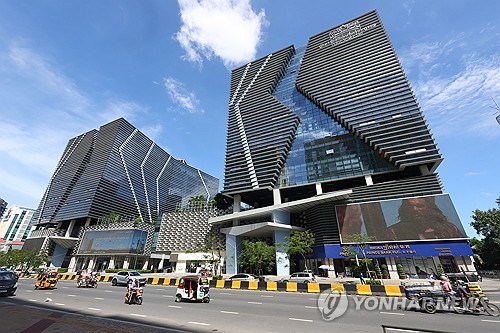
(Seoul=Yonhap Infomax) Won Jung – The Korea Financial Intelligence Unit (FIU) is moving to establish a concrete response system to prevent anti-money laundering (AML) issues arising from transnational crimes.
The FIU announced on the 24th that it held a 'Council of Related Agencies for Anti-Money Laundering' at the Government Complex Seoul, together with the Financial Supervisory Service and 16 other relevant institutions, to address cross-border crime.
The meeting primarily focused on reviewing the banking sector's current response to transnational crime and discussing the roles of government and financial institutions in minimizing potential negative impacts.
Going forward, the FIU will analyze types of suspicious transactions related to cross-border crimes, and financial institutions will be required to report all transactions that fall under these categories in a comprehensive manner.
Last week, the FIU, in cooperation with the banking sector, already analyzed certain types of suspicious transactions and discussed criteria for extracting such cases.
Banks are currently reporting suspicious transactions based on these criteria, and reporting requirements will be extended to other financial sectors in the future.
An FIU official stated, "The reported suspicious transactions will undergo strategic analysis and will be utilized by law enforcement agencies such as the prosecution and police to detect criminal organizations."
Additionally, the FIU will strengthen internal controls for anti-money laundering at financial institutions.
The Financial Supervisory Service's preliminary review of AML management and supervision at overseas branches and subsidiaries of banks found that some banks had limited their oversight to document-based inspections for Southeast Asian branches and subsidiaries.
In response, the FIU has called for enhanced customer due diligence for clients suspected of cross-border crime and for on-site inspections of branches and subsidiaries located in Southeast Asia.
In the same context, the FIU also plans to thoroughly examine the management status of financial institutions' overseas branches and subsidiaries during anti-money laundering inspections.
Finally, the FIU will continue to strengthen cooperation frameworks such as information sharing on financial transactions with overseas FIUs and pursue ongoing improvements to related systems to respond to cross-border crimes.
Director Lee Hyung-joo emphasized, "This council marks the first step in responding to transnational crime. The FIU will continue to strengthen its response to potential cross-border crimes beyond the recent Cambodia incident."
jwon@yna.co.kr
(End)
Copyright © Yonhap Infomax Unauthorized reproduction and redistribution prohibited.

